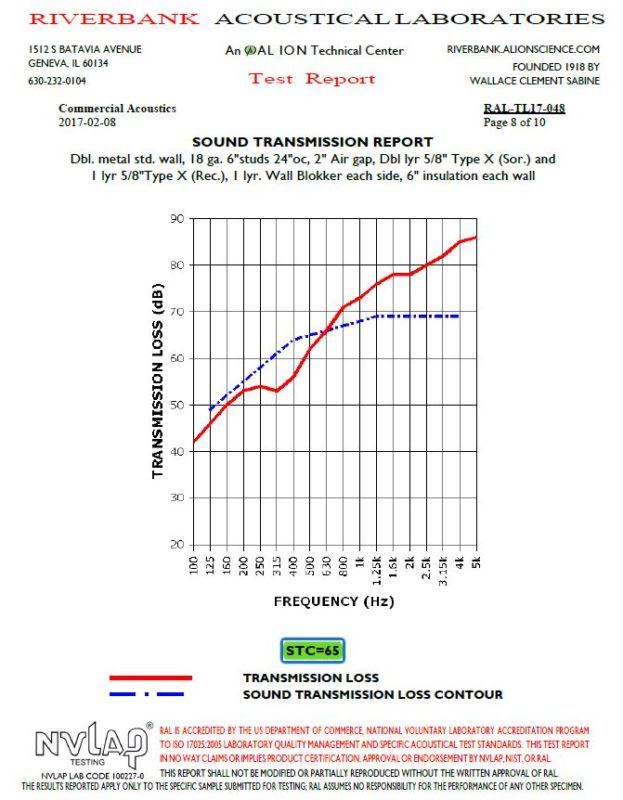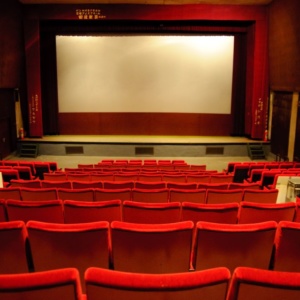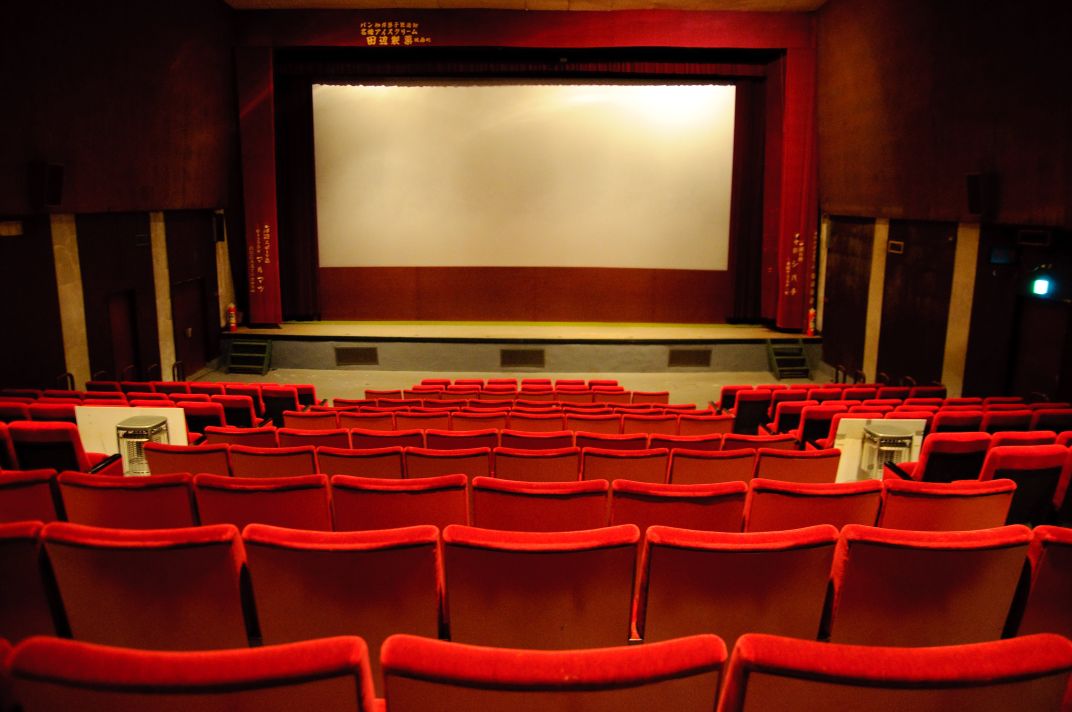When designing or building a new movie theater, it is critical to consider the movie-watching experience, from seating locations to auditorium reverberation and attenuation between adjacent theaters. Soundproofing the movie theater is one of the key considerations.
Challenges of Soundproofing Movie Theaters
Whether you have unique sound requirements or standard THX constraints, the wall thickness, mass, and stiffness are critical considerations when determining the STC and Transmission Loss performance you may expect.
One of the top complaints we see in theaters is walls meeting high-STC requirements, but insufficiently designed to block the low-frequency noises that are most distracting (and annoying). As one consultant recently noted, STC should stand for Speech Transmission Class, since it is best used as a single-number guide in offices and other speech-constrained environments. STC is only calculated using transmission loss data from 100 Hz to 4000 Hz, meaning that critical frequencies between 50-100 Hz are completely ignored. Since walls block less sound at these lower frequencies, but they are regularly used in cinema applications, it is clear that they should be individually considered during the design process.
See Case Study: Cost-Effective Soundproofing for Luxury Cinemas (STC 65+)
Also: Soundproofing and Acoustic Treatment Methods for Home Movie Theaters
Ultimately, to reach acceptable dB transmission loss levels below 1000 Hz, you need at least a double-stud wall with a 2” air gap between the parallel studs. Traditionally, this has been used with multiple layers of drywall on each side – the most common combination we see is 2 layers one side and 3 layers on the other side. Unfortunately, this is a very inefficient way to achieve higher STCs, since the adjacent drywall layers are directly attached, meaning the sound travels directly through the layers.

Furthermore, we’ve seen a significant rise in complaints with CMU-based walls, even when resiliently mounted drywall is incorporated and the cells are filled. These provide significant mass between the source and receiving rooms, but not enough decoupling between the rooms to attenuate low frequencies. Soundproofing movie theaters requires both STC components – high mass and significant decoupling.
Cinemas should also consider decoupling the wall tracks or base-plates from the concrete subfloor with a small neoprene or isolation strip.
Cinema and Movie Theater Soundproofing Techniques
Today, many architects and consultants are implementing soundproofing membrane layers in their designs. These offer some decoupling capability, while achieving higher STC and low-frequency attenuation than their corresponding gypsum-only walls.
For instance, consider a wall with gypsum-only (5 layers) versus membrane (2 layers membrane and 2 layers drywall). The former achieves a transmission loss of 48dB at 315Hz while the latter achieves 58dB loss at the same frequency. This 10dB increase is equivalent to cutting the sound power by 50%.
Some 3rd party theater-certifying bodies, such as THX, have specific low-frequency targets that are well above what a standard STC 70 wall will block. Therefore, it’s critical to consider not only the overall sound-blocking of a wall, but specifically it’s low-frequency attenuation capabilities.
When designing UL-rated STC assemblies, remember to look for cost savings in the walls. Soundproofing Movie Theaters can be much more affordable than triple-stacking drywall – higher STC Ratings can be achieved at a fraction of the price!



